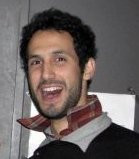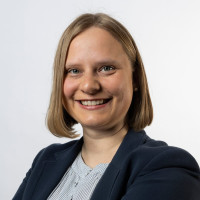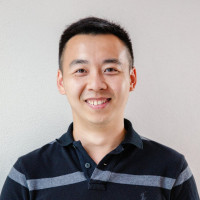Health
Chronic & Non Communicable Diseases
Prevention & Personalised Health
Cancer
Genetics & Omics
Biomarkers
Post-Doctoral Fellowships
France
Studying cancer pathways in stem cells
When discussing cancer, balance is everything. p53, a gene famous for its mood swings, can either start or stop tumors. Whether pre-cancerous cells lean towards survival or death depends a lot on what p53 proteins do and how much they do it. Interestingly, Dr. Candeias has revealed that levels of p53 proteins are regulated by… p53 itself! Or, rather, by p53 messenger RNA (mRNA), the intermediary which gives instructions to make p53 proteins. Unorthodoxly, the molecule happens to protect from destruction the very proteins that it makes. A kick in the guts of molecular biology doctrines that explains some of p53’s fancies: even with operational proteins, malfunctioning RNA could deregulate the cell’s fragile equilibrium. Grasp of the nuts and bolts of mRNA multi-functionality could open way for cancer treatments that target only the desired functions of p53 and avoid secondary side effects.
My research focuses on the protein p53, a key mediator of the DNA damage response which controls genome stability and cancer development. My aim is to verify the importance of the p53 mRNA (messenger RNA) – Mdm2 interaction in controlling the protein Mdm2 and p53 functions. This study holds promise to offer a viable explanation to why induction of Mdm2 by p53 in response to DNA damage leads to an actual increase in p53 activity and not to p53 inactivation.
My research focuses on the protein p53, a key mediator of the DNA damage response which controls genome stability and cancer development. My aim is to verify the importance of the p53 mRNA (messenger RNA) – Mdm2 interaction in controlling the protein Mdm2 and p53 functions. This study holds promise to offer a viable explanation to why induction of Mdm2 by p53 in response to DNA damage leads to an actual increase in p53 activity and not to p53 inactivation.
Back to basics: a trip down cancer pathways
To add or modify information on this page, please contact us at the following address: community.research@axa.com

Marco
CANDEIAS
Institution
Institut National de la Santé et de la Recherche Médicale
Cancer Institute
Country
France
Nationality
Portuguese
Related articles
Health
Pollution
Prevention & Personalised Health
Toxic Pollutants & Hazardous Substances
Plastics
Post-Doctoral Fellowship
Luxembourg
Using New Data Sources to Better Manage Substances of Concern (Soc)
In order to put together an accurate risk management process and drive the appropriate regulatory policies, it is necessary to... Read more

Oona
FREUDENTHAL

